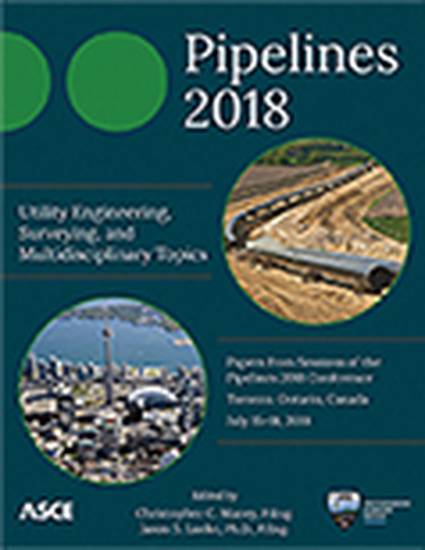
Article
Evaluation of the Environmental Sustainability during Fabrication of Commonly Used Pipe Materials
Proceedings of Pipelines 2018
(2018)
Abstract
With the consistent increase in global population, environmental sustainability of construction has become a larger issue due to the increasing concerns about global climate change and carbon emissions. In the pipeline industry, carbon footprint analyses have been performed regularly to identify fewer carbon intensive materials and methods used during construction. The pipeline industry, however, has yet to evaluate the environmental sustainability of pipe materials during the fabrication stages. The objective of this paper is to calculate and analyze the environmental sustainability, as determined by carbon footprint and embodied energy, of 100 feet of pipe during the fabrication stages (material extraction, material production, and pipe manufacturing) made from three different types of pipe: pre-stressed concrete cylinder pipe (PCCP), polyvinyl chloride (PVC), and cured-in-place pipe (CIPP). This paper focuses on a large-diameter, 36 inches’ sewer pressure pipe operating at 100 psi internal pressure. Initial results show the environmental sustainability of PCCP to be lower than PVC and CIPP. The second phase of this project will focus on the environmental impact for each during construction, operation, and end of life to determine the overall life-cycle environmental sustainability of each material.
Disciplines
Publication Date
2018
Citation Information
Elizabeth Matthews. "Evaluation of the Environmental Sustainability during Fabrication of Commonly Used Pipe Materials" Proceedings of Pipelines 2018 (2018) Available at: http://works.bepress.com/elizabeth-matthews/8/
